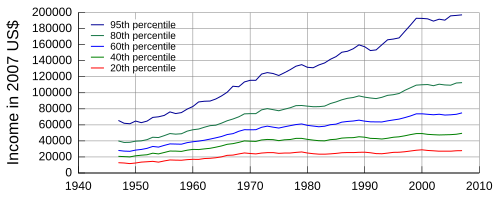And yet that has nothing to do with what is being discussed. Please step out of your capitalist cheer leading clothes for ONE SECOND and realize what is being asked.
Does free trade force a percentage of the population to live in poverty? Being paid $20 a month does not mean you get out of poverty. It means you get
just enough to feed yourself. Nothing else. And that is by 'conservative' standards of what you'd need to feed yourself in impoverished countries. Which is about $1 a day but lets say he makes $30 instead of $20. Now what does working just so you can feed yourself mean to you? It means you are stuck in a cycle of trying to accumulate just enough wealth to survive. Thus my argument that capitalism does force some people to stay poor. Obviously if you only make enough money through the day to eat, you're not going to want to go to school or get a higher certification because you simply don't have the time. That is what is being argued here.
That is so ridiculous it's not even funny. The formula is very simple: higher level of education gives one more opportunities and thus more money.
Now, you're welcome to bring up every single exception you believe disproves this rule but would you say that on average a person with a bachelors degree is very likely to have
less money than some high school drop out? I highly doubt that. I think the guy with a bachelors is going to have more money 9 times out of 10.




